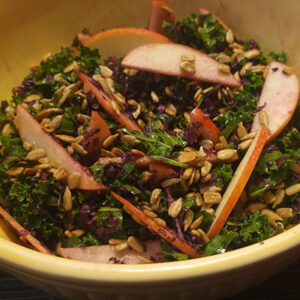Who among us has heart disease?
A Cardiologist directed this question to a room full of people. A few hands went into the air. She explained that we all have heart disease. Heart disease begins the moment we’re born and our lifestyle choices can hurry or slow the progress.
High blood pressure plays a big role in this advancement and is a leading risk factor for both heart disease and stroke.
Tips to help lower high blood pressure
Here are some important lifestyle tips to adopt if your blood pressure is above normal:
Move & Stretch that heart muscle
Do aerobic exercise 30 to 60 minutes a day three to five days a week. Exercise strengthens the heart and blood vessels.
Get a doctor’s approval for exercise such as weightlifting which can raise blood pressure.
Watch the sodium
Research on very low sodium diets shows mixed results. The best advice is to limit processed food with excess salt, sugar and additives.
Eat less of the “Salty Six”:
- Bread and rolls
- Cold cuts and cured meats
- Pizza
- Fried or canned poultry
- Canned soup
- Fast food sandwiches
When cooking with less salt, try experimenting with herbs, spices, and citrus juices to flavor your food.
When eating out, ask for your food to be cooked without added salt. Your daily sodium intake should not exceed 2,000 mg daily.
Eat high nitric oxide (NO) producing foods
Nitric Oxide is a natural compound that signals the arteries to expand and relax. Eating high NO foods can help reduce blood pressure.
Great choices include:
| Root Vegetables | Leafy Greens | Cruciferous Vegetables |
| Beets | Kale | Kohlrabi |
| Beet Juice | Swiss Chard | Cabbage |
| Carrots | Lettuce | Cauliflower |
| Chicory | Mustard Greens | Broccoli |
| Wild Radish | Bok Choy | Arugula |
Eat more fresh fruit and vegetables in general
Fruits and vegetables contain important minerals that help keep blood pressure low such as potassium, calcium, and magnesium. They also contain vitamin C, which some studies have shown to reduce high blood pressure.
You should aim to eat:
4 servings daily of 1 cup raw leafy vegetables or ½ cup raw or cooked vegetables.
2 servings daily of 1 medium piece of fruit, ¼ cup of dried fruit, or ½ cup fresh, frozen or canned fruit.

Sweet & Sour Winter Salad
Are Winter and Salad oxymorons? Not at all. Give this easy to throw together recipe, developed by Kate Sherwood, a try. It’s jammed packed with heart healthy ingredients.
➜ Read more
Focus on Fiber
When you eat grains, choose whole grains such as brown rice, whole grain cereals, or quinoa.
Eat plant-based proteins
Increase legumes, nuts and seeds and move away from having meat or dairy as the focus of the meal.
Limit saturated (animal) fats and trans/hydrogenated fats
Butter, cheese and cream contain saturated fats. Margarine, commercial baked goods and many processed foods contain trans and hydrogenated fats. Both contribute to hardening arteries which raises blood pressure. Limit lean meats to 6 ounces daily, portions should not exceed 3 ounces (around the size of a deck of cards).
Rethink your Drink
Drink milk instead of soda or other sweetened beverages with meals for calcium. If using milk alternatives, check nutrition facts to ensure the product is calcium fortified
Watch the caffeine and alcohol
Keep caffeine to less than 200 mg/day (one eight-ounce cup coffee = 150 – 200 mg caffeine). Alcohol can increase blood pressure. Limit daily intake to less than one (women) or two (men) drinks per day.
Relax
Try to spend 30 minutes a day relaxing with yoga or meditation; listen to calming music; read a good book or take a warm bath (but don’t linger in a hot bath or sauna).
Check your medications and supplements
Ask your doctor about medications such as nasal sprays, non-steroidal anti-inflammatory drugs (NSAIDS), and supplements such as guarana, kola nut, yerba mate, ginseng, and licorice root — these all can increase blood pressure.
Remember, there are things you can control and things that you can’t that affect our health. Every one of the behaviors we shared here is something you can do to protect your heart health starting today. Talk to your Doctor if you have questions and to learn more about your heart health and risks.
Learn more about Heart Health
- Are Winter and Salad oxymorons? Not at all. Give this easy to throw together recipe, developed by Kate Sherwood, a try. It’s jammed packed with heart healthy ingredients.
- Heart health: How to Stay Active in the Cold by American Heart Association.
- How to Help Prevent Heart Disease At Any Age by American Heart Association
- Heart healthy living by CHPW.

